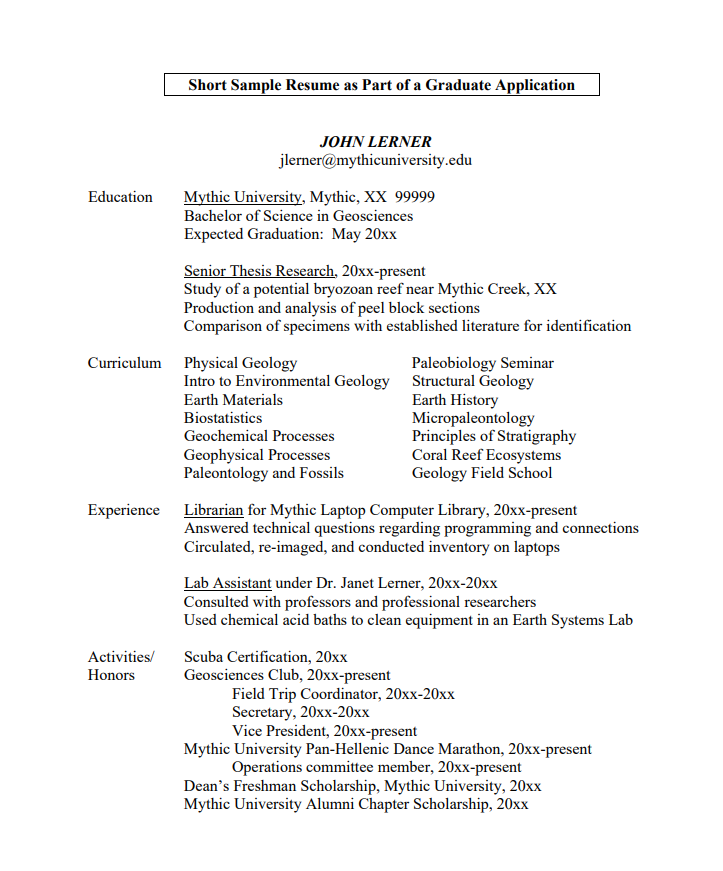How to write a CV? This is a challenge for almost everyone. At the stage of applying for university or getting internships and job opportunities, people have to write and polish their Curriculum Vitae (CV). It is a powerful weapon to introduce one’s highlights to admission committees or potential employers and increase competitiveness. This article provides detailed information on writing a CV to help you upgrade to the top of your game.
What is a CV?
CV, also called Curriculum Vitae, means “course of life” in Latin. It is an overview of one’s academic achievements, extracurricular activities, past experiences, personal qualities, and existing professional skills. A good CV should be tailored and well-structured, thus facilitating the examiner to understand applicants as comprehensively and accurately as possible in the limited time available.
A “tailored” CV means that the CV should detail the applicant’s personal information, previous work experience, and academic achievements to date and devote a small section to the applicant’s personality, hobbies, interests, etc.
A “well-structured” CV means that its length should reflect the amount of experience you have to showcase to a potential employer. Generally, one or two A4 pages are enough for a concise CV.
What Should a CV Include?
To ensure your CV is comprehensive and effective, when compiling a CV, it’s important to include the following key elements:
- Basic information
- Personal profile
- Education
- Working experience
- Honors & rewards
- Hobbies & interests
How to Write a CV?
1. Basic information
List name, address, phone number and email at the top of the page. The name is larger than the rest of the text, and it’s up to you how you lay out this information.
The standard format is to put the name in the center of the page. Home addresses are listed in block format on the left side of the paper. The phone number and email are listed under the home address. If there is another address (such as when you were at school), list this address on the right side of the paper.
2. Personal profile
A personal statement, which is optional and placed under your contact details, provides the admission officials with a concise overview of who you are in a few sentences. The information can be about what programs you are aiming to, what specifically attracted you to the program you are applying for, and what is your future plan.
3. Education
This part is mainly about educational background after high school. Remember to put your most recent educational experience at the top. If you are a postgraduate applying for PhD., you can write your master’s school first and then undergraduate school. Besides, you can also write your GPA and GPA ranking and add the courses and scores with higher grades, especially those related to the application program, which is a big plus.
For master’s degree students, completing a thesis is essential, as it serves as a significant demonstration of their research skills and potential when applying for a PhD program. If the thesis has been published as a journal article, it is important to include specific details on your CV such as the publication date, authors, title of the article, journal name, volume number, issue number, and any other relevant information that facilitates searching for it.
4. Honours & awards
In addition to the awards you have gotten, you can also write some of the qualification certificates or other honors. It can be written in chronological order, the latest awards are advised to put in the first. If there are any heavyweight awards, they can be expressed in bold.
5. Working experience
Some universities attach great importance to work experience and prefer applicants with rich work experience. Therefore, you can introduce your work experience related to the program you want to apply for, whether it is internship, part-time or full-time work experience. Remember to use statistics to state your achievement in work.
6. Extracurricular activity
Extracurricular activities include the experience of being a volunteer, entering student organizations, exhibition planning, and so on. Listing off-campus activities you are involved in related to the application program on your CV can also make a good impression on the interviewer.
7. Hobbies & interests
This part includes skills that you are good at in computers, languages, art, etc. For example, if you have computer-related skills, you can list your proficiency in C, C++, Python, Java, and other programming languages. In terms of interests and special experiences, you can write them according to specific requirements.
What to Put in a CV?
Here are key elements that are necessary when compiling a CV.

- Make your CV look clear and easy to read with standard fonts and font sizes.
- Be logical in the order of your content, and avoid using lengthy or unnecessary words.
- Use accurate words, especially terminology, when it comes to academic matters.
- Highlight your personal strengths for the specialty you are applying for, and do not exaggerate or falsify your qualifications.
- Save your CV as a Word document and a PDF to make it flexible to view and edit your document.
- Ensure correct spelling and grammar on your resume.
CV: Template
Here is the template for undergraduate students. You can customize it according to your personal information, education, skills, and experiences.
[Your Full Name]
[Your Address]
[City, State, ZIP Code]
[Your Email Address]
[Your Phone Number]
Summary
Be clear that you want to pursue a [Major] degree at [University], [specific skills or areas that you are interested in].
Education
[Your University], [City, State]
Bachelor degree in [Your Major], Expected Graduation: [Month, Year]
- Relevant Coursework: [List a few key courses related to your field]
- GPA: [Your GPA, if it’s high; otherwise, omit]
- Relevant Projects/Research: [Briefly mention any notable projects or research work]
Working Experience
[Most Recent Job/Internship Title], [Company/Organization Name], [City, State]
[Dates of Employment]
- Description of Responsibilities: [Detail your responsibilities and what you accomplished]
- Skills Utilized: [List specific skills you used, e.g., software, languages, methodologies]
- Achievements: [Highlight any quantifiable achievements or contributions]
[Previous Job/Internship Title], [Company/Organization Name], [City, State]
[Dates of Employment]
- Description of Responsibilities: [Detail your responsibilities and what you accomplished]
- Skills Utilized: [List specific skills you used]
- Achievements: [Highlight any quantifiable achievements or contributions]
Skills
- Technical Skills: [List relevant software, programming languages, tools, etc.]
- Soft Skills: [List soft skills such as teamwork, communication, leadership, and problem-solving]
- Languages: [Any languages you speak fluently, including English]
- Certifications: [Any relevant certifications or licenses]
Academic Achievements
[Project Title], [University/Organization Name]
[Dates of Project]
- Description: [Briefly describe the project, its goals, and your role]
- Technologies/Methods Used: [List the tools and technologies involved]
- Outcomes/Results: [What you achieved or learned from the project]
Publications (if applicable)
- [Title of Publication], [Publication Name], [Date]
- [Co-authors, if any]
Extracurricular Activities
[Club/Organization Name], [University/Community Name]
[Dates of Involvement]
- Role: [Your role within the organization]
- Achievements/Responsibilities: [List any notable achievements or responsibilities]
[Volunteer Position], [Organization Name], [City, State]
[Dates of Service]
- [Detail your responsibilities and describe the impact of your contribution]
Honors & awards
- [Award/Honor Name], [Year Awarded]
- [Another Award/Honor], [Year Awarded]
- [Relevant Scholarships], [Year Awarded]
Hobbies & interests
[List your hobbies and interests]
CV: Example
Below is a short sample CV as part of a graduate application for your reference.

Conclusion
This blog is about how to write a CV and provides templates and examples about a good CV. By adhering to a clear layout and tailoring your content to the application, you can easily impress the admission committees. Our templates are also suitable for job applications. You can adjust some of the contents according to your actual needs. Quantifiable results are better ways to state your achievements. A well-crafted CV can open doors to academic or job opportunities, so it is worth taking the time to make your CV strategically.
FAQ
What should not be on a CV?
There are several items that should not be included on a CV, as they can detract from its professionalism and effectiveness.
- Personal information such as age, marital status, or photos
- Irrelevant content is not in line with the job or program you are applying for.
- Negative and lengthy personal statements without quantifying achievements.
- Outdated information that cannot reflect your current skills and experience.
- Fake experience and skills that you do not have.
How far back should a CV go?
Generally, a CV should cover a maximum of 10 to 15 years of relevant experience. A CV should always be tailored to the specific job application. However long your past work experience is, if it is irrelevant to the work you are applying for, do not put it on your CV.
How to write a CV for a job with no experience?
When writing a CV for a job without experience, you can emphasize your education, personal skills, and achievements that demonstrate your abilities. Try to make your content as relevant to the job description as possible. By showcasing your strengths and potential, you can craft a good CV to set you apart from potential employers.







